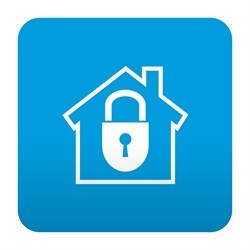
"Sobering crime statistics have made South African home buyers among the most security conscious people in the world," says Adrian Goslett, CEO of RE/MAX of Southern Africa. "For many, security has become a determining factor in where they choose to live. The result of this is that properties with top-end security features or those located in security estates are highly sought-after and often fetch a higher price than other types of properties."
He notes that while homes located within security estates generally provide a greater return on investment over the long term, not everyone can afford a property in one of these estates. But that does not mean that they have to compromise on their safety and become easy targets. "There are several ways through which homeowners could increase their home's security and deter criminals," he says.
Here, a few pointers to homeowners who want to avoid becoming a soft target:
Goslett says that most intruders are looking for a home that is going to be as easy and quick to break into as possible. The longer it will take to break into the home, the less likely it will happen. "For this reason, don't leave anything out that could help them gain access to the home, such as garden tools or ladders. It is also a good idea to ensure that there are no areas in the garden where an intruder could hide. Keep brushes, trees and foliage trimmed back and ensure that entrance areas are well lit and visible," advises Goslett. "Avoid leaving the garage door unlocked; even if the car is not parked inside, there are generally items in the garage that make breaking into the home far easier. For homeowners with the facilities, a guard-dog that has been trained to bark at any disturbance acts as a good deterrent. Homeowners should also talk to their children and domestic workers about the importance of identifying who is trying to gain access to the property."
According to security experts, when it comes to deterring would-be burglars, there is simply no match for physical barriers such as palisade-style fencing or good quality electric fencing. "It is important to remember however, that when an electric fence is used around the perimeter, the gate will became the area that burglars will see as a possible weak point to gain entry, so it is advisable to have the gate set up to an alarm system," says Goslett.
He notes that as an added precautionary measure, motion sensors and beams provide an excellent back-up to the physical barrier. They could also be connected to an alarm system as an early detection device to alert the necessary people.
Generally burglars would prefer to avoid a confrontational situation so they would rather break into a home while the occupants are not there. Goslett says that wherever possible, homeowners should avoid any telltale signs that the family has gone away, such as uncollected post or newspapers. These signs will only make the home more vulnerable to possible intrusion. Timers can be installed for the lights both inside and outside the home and a car can be left where it is safe but visible from the outside.
According to Goslett, one way that criminals check to see whether the occupants of a property are at home is by ringing the buzzer or intercom - so never ignore it, even if it is late at night. If the buzzer or intercom is ignored, an intruder may take that as an invitation to proceed to enter. If the intercom does not work, remove or repair it as soon as possible.
Crime reports suggest that many housebreakers tend to take the vehicles in addition to the household contents. "To avoid this, any vehicle keys or spare keys should be hidden or kept in unusual places. This is especially important if the homeowner to going to be away on holiday. If possible don't keep keys on key hooks or counters where they are easily seen, rather put them out of sight and in a safe place," advises Goslett.
Goslett says that an excellent way to get to know your neighbours and assist in keeping the community safer is to join your local community policing forum or neighbourhood watch where responsibility and time is shared among residents to make everyone safer.
"As the saying goes, prevention is better than cure. Although it might be impossible to completely ensure that a home is never broken into, taking the necessary precautions is a positive step forward to ensuring a safe home as well as its occupant's safety," he says.